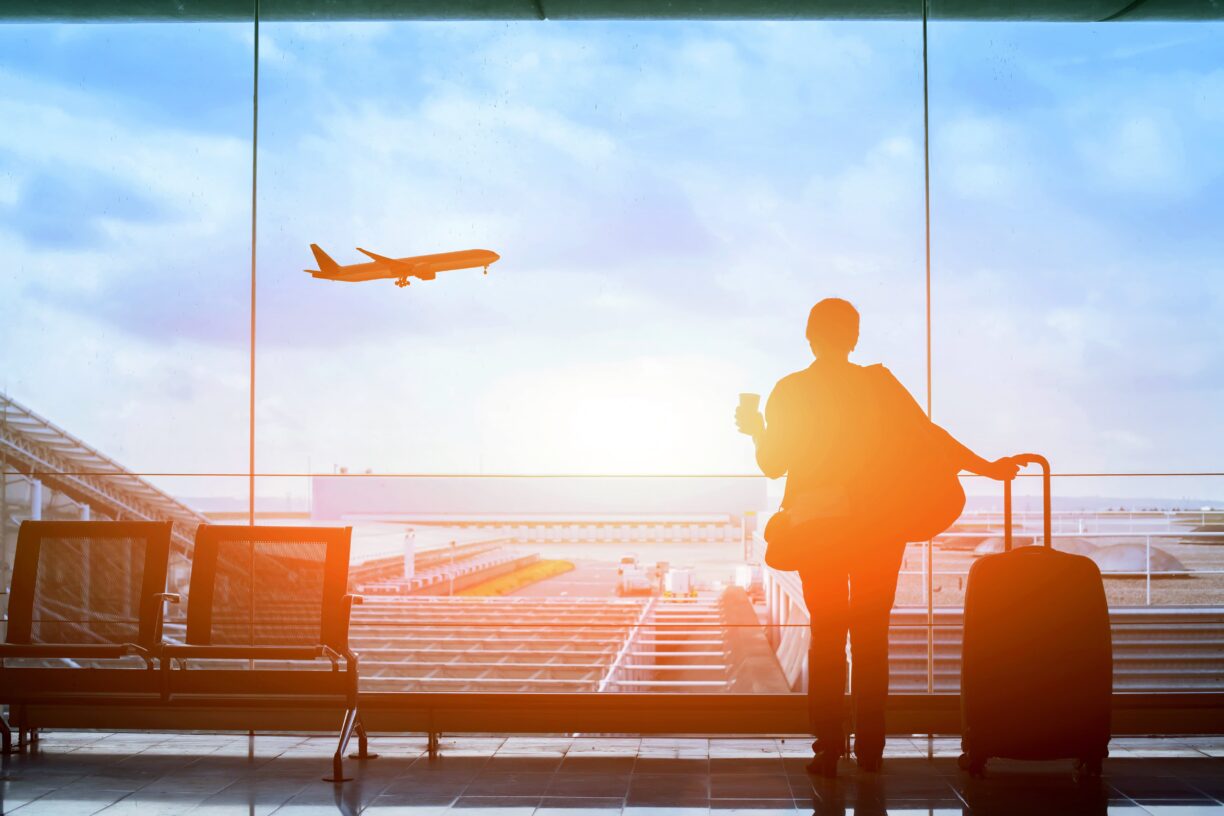Jet lag is the nemesis of every seasoned traveller, a merciless thief that robs you of energy and clarity just when you need it most.
Crossing time zones throws your body’s internal clock out of sync, leaving you feeling like a disoriented zombie.

But fear not! With these 10 expert-approved strategies to beat jet lag, you can minimize its impact and stay energized during your travels.
1. Adjust Your Schedule Before Departure
Start adjusting your sleep schedule a few days before your trip. If you’re flying east, go to bed an hour earlier each night; if west, an hour later.
This gradual shift helps your body acclimate to the new time zone. Similarly, adjust your meal times to match those of your destination. This can ease your body into the new routine even before you take off.
2. Stay Hydrated
Airplane cabins are notorious for their low humidity, which can lead to dehydration—a key culprit in exacerbating jet lag.
Experts recommend drinking at least 8 ounces of water every hour during the flight. Avoid alcohol and caffeine, as they can dehydrate you and disrupt your sleep patterns. Instead, opt for water, herbal teas, or electrolyte-enhanced drinks to keep hydrated.
3. Sleep During the Flight
For short daytime flights, staying awake can help you adjust to your destination’s time zone. Engage in in-flight entertainment, read a book, or catch up on work.
For longer, overnight flights, try to get some sleep. Use eye masks, earplugs, or noise-cancelling headphones to create a restful environment, and consider a neck pillow for added comfort.
4. Use Light Exposure Wisely
Natural light is your best friend when it comes to resetting your internal clock. Spend time outside during the day, especially in the morning, to help your body adjust to the new time zone.
If natural light isn’t available, light therapy lamps can be a great substitute. Use them for 30 minutes to an hour each morning to help your body sync with local time.
5. Consider Melatonin Supplements
Melatonin can help signal to your body that it’s time to sleep. A typical dose ranges from 0.5 to 5 milligrams, taken 30 minutes before bedtime at your destination.
However, always consult with a healthcare provider before starting any new supplement, especially if you have underlying health conditions or are taking other medications.
6. Stay Active
Exercise can reduce fatigue and improve your overall well-being. Light activities like yoga, stretching, or a brisk walk once you arrive at your destination can be very beneficial.
During the flight, get up and walk around every hour to maintain circulation and reduce the risk of deep vein thrombosis (DVT). Simple in-seat exercises like ankle circles and leg lifts can also help.
7. Adopt the Destination’s Time Zone
As soon as you board the plane, start thinking in terms of your destination’s time zone. Eat and sleep according to the local time.
This mental shift can help your body begin adjusting before you land. If you arrive during the day, resist the urge to nap and stay active until a reasonable local bedtime.
8. Manage Your Meals
During the flight, opt for light, easily digestible meals. Heavy or rich foods can be harder to digest and might make it more difficult to sleep.
Align your meal times with the local time at your destination as quickly as possible. Regular eating intervals help your body adjust to the new schedule.
9. Create a Restful Environment
Make your hotel room as comfortable as possible for sleep. Use blackout curtains to block out light, set the thermostat to a cool temperature (around 18°C or 65°F), and minimize noise with earplugs or a white noise machine.
Bringing a travel kit with essentials like a travel pillow, blanket, and a small portable humidifier can also help.
10. Be Patient and Listen to Your Body
Adjusting to a new time zone can take a few days, especially if there’s a significant difference. Be patient and give yourself time to adapt.
If you feel extremely tired, allow yourself short naps (20-30 minutes) to recharge. Listen to your body and avoid overexerting yourself during the adjustment period.
Additional Tips
Pre-Flight Rest: Ensure you get plenty of rest before your flight. Being well-rested beforehand helps you cope better with the stress of travel and the effects of jet lag.
Time Your Arrival: If possible, schedule flights that arrive in the early evening at your destination. This allows you to stay awake until a reasonable local bedtime, making it easier to adjust.
Digital Detox: Limit screen time before bed to help your body wind down. The blue light from screens can interfere with your ability to fall asleep. Use blue light filters on your devices or avoid using them an hour before you plan to sleep.
A spokesperson from Ski Vertigo commented on the findings: “To save money while combating jet lag, consider planning your arrival and departure times strategically.
Booking flights that arrive in the evening can help you stay awake until a reasonable local bedtime, reducing the need for expensive airport hotel stays or unnecessary overnight accommodations.
Choosing airlines that offer amenities like extra legroom or complimentary sleep kits can help you rest better during the flight without additional cost.
For health-conscious travellers, it’s crucial to maintain your well-being during your journey. Instead of relying on potentially costly airport or in-flight meals, pack your own nutritious snacks to avoid processed foods high in sugar and salt that can exacerbate jet lag symptoms.
Simple, healthy options like nuts, fruits, and whole grain sandwiches can keep you energised and hydrated.
On top of that, consider investing in compression socks to improve circulation and reduce the risk of deep vein thrombosis (DVT) during long flights, ensuring you arrive feeling healthier and more comfortable.”





